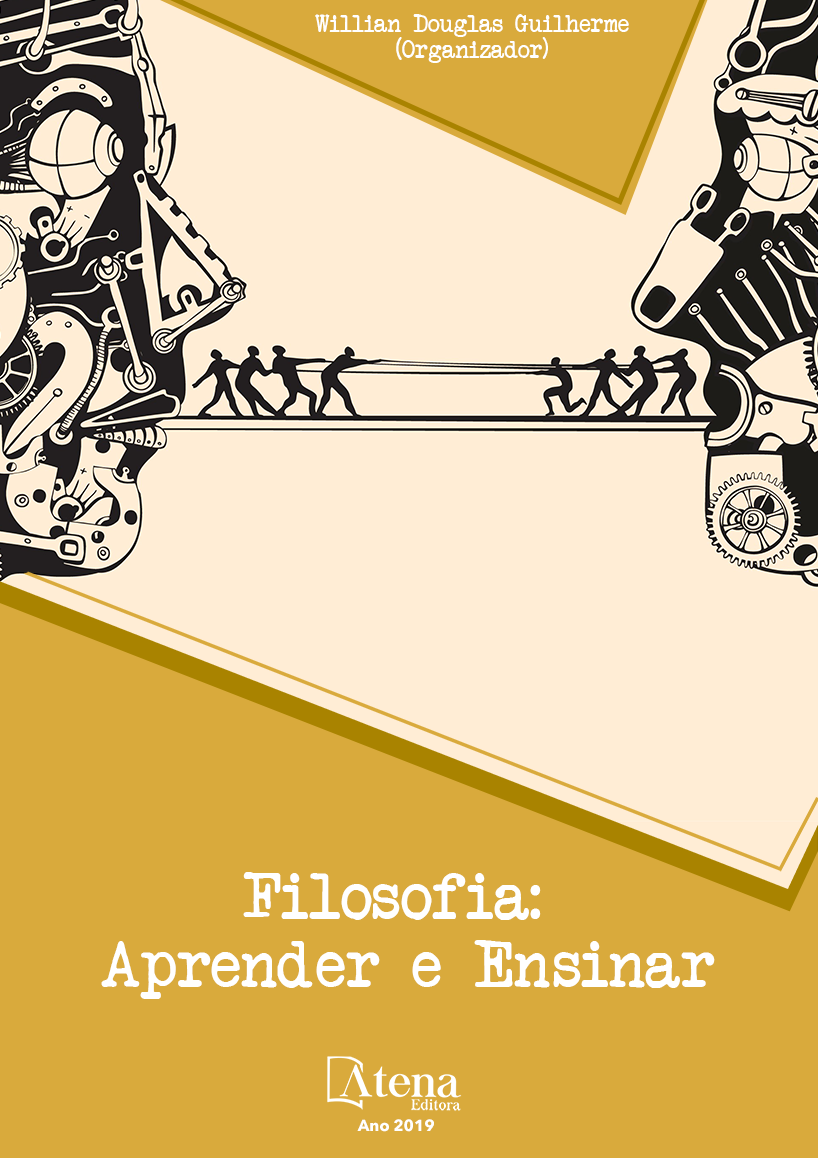
DEUS, JUSTIÇA E A LINGUAGEM DO AMOR ÉTICO EM EMMANUEL LÉVINAS E HERCULANO PIRES
Partindo da refutação comum ao
tema da morte de Deus, que passou a imperar
no século XX, objetivamos estabelecer um
diálogo entre os filósofos Emmanuel Lévinas
e Herculano Pires, destacando o modo como
cada um trata a relação entre a linguagem
do amor ético e da justiça, marcando uma
alteridade mediada pela transcendência. Para
Lévinas o sujeito é constituído pelo outro,
embora algumas vezes o filósofo tenha em
mente o outro infinito, ele também está certo
de que essa infinidade só se faz conhecer pelo
rosto de outra pessoa que carrega consigo uma
exigência da transcendência. Pode-se dizer
que o outro está ali, ele não sou eu e por essa
razão se constitui uma alteridade. Pires percebe
no amor ético ao próximo, a possibilidade para
o encontro que marca a relação moral entre o
eu e este próximo, pois a solidão do ser gera
a busca do outro. Este amor ético atinge o seu
alvo principal que é a transcendência e nele se
transfunde. Tanto Emmanuel Lévinas quanto
Herculano Pires, problematizam a constituição
da subjetividade humana frente a relação com o
próximo, ressaltando a necessidade do eu não
permanecer fechado em si mesmo e ao libertarse
do seu egocentrismo, permitindo que suas
potencialidades se desenvolvam na direção
ao outro. De modo semelhante a análise
lévinasiana, Pires também afirma o caráter inato
da transcendência no homem, cuja a afinidade
com este arquétipo divino, é o que se deseja
atingir no processo de transcendência.
DEUS, JUSTIÇA E A LINGUAGEM DO AMOR ÉTICO EM EMMANUEL LÉVINAS E HERCULANO PIRES
-
DOI: 10.22533/at.ed.83619071011
-
Palavras-chave: alteridade; amor ético; justiça; liberdade; transcendência.
-
Keywords: alterity; ethical love; justice; freedom; transcendence.
-
Abstract:
Starting from the common
refutation to the theme of the death of God,
which began to prevail in the twentieth century,
we aimed to establish a dialogue between the
philosophers Emmanuel Lévinas and Herculano
Pires, highlighting the way each treats the
relationship between the language of ethical
love and justice, marking an alterity mediated
by transcendence. For Lévinas the subject is
constituted by the other, although sometimes
the philosopher has in mind the other infinity,
he is also certain that this infinity is only made
known by the face of another person who carries
with him a requirement of transcendence. One
can say that the other is there, it is not me and
for that reason it constitutes an alterity. Pires
perceives in ethical love for others, the possibility
for the encounter that marks the moral relationship between the me and this neighbour,
because the loneliness of being generates the search for the other. This ethical love
reaches its main target which is transcendence and transfused in it. Both Emmanuel
Lévinas and Herculano Pires problematize The constitution of human subjectivity in
relation to the relationship with the neighbour, emphasizing the necessity of the I do
not remain closed in itself and by freeing oneself from its egocentrism, allowing its
Potentialities to develop in the direction of the other. Similarly to the Lévinasian analysis,
Pires also affirms the innate character of transcendence in Man, whose affinity with this
divine archetype, is what one desires to achieve in the process of transcendence.
-
Número de páginas: 15
- ROGÉRIO LUIS DA ROCHA SEIXAS
- EDSON SANTOS PIO JÚNIOR


